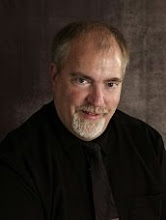The right to privacy?

When students enroll at a Christian school, there are certain expectations and conditions of that enrollment. Each student must agree to a code of Christian conduct, and even if they are not Christian, they must also be open to instruction. The non-Christian in the Christian school must be aware that every effort will be made to bring them to salvation through faith in Jesus.
In 2004, United Artists released the film "Saved," ostensibly about life in American Eagle Christian High School. A girl named Mary (what else?) sees a vision of Jesus, who told her to have sex with a boy who was expressing gay feelings so that he could be “cured.” Of course, she becomes pregnant. What I recall about the movie is that the principal is found to be in no position to judge Mary and expel her, because he himself is carrying on with a married woman who is part of the youth ministry team at his church.
If you’ve seen “Saved,” you know that it perpetuates the worst stereotypes of evangelical Christians, especially self-righteousness and intolerance, wanting to take the speck out of a neighbor’s eye while ignoring the beam in our own. There is a Jewish character who feels “out of place” and is always the target of zealous born-again Christian classmates to lead her to accept Christ. The school assemblies (chapel?) are outrageous in their pep-rally, enthusiastic atmosphere. But the situation that forms the premise of the plot is just fiction…or is it?
I’d like you to read the linked news story very carefully. It tells about an evangelical Christian school in southern California (California Lutheran) against which a lawsuit has been brought by two expelled students. The two students, both junior girls, allege that they were expelled unjustly because they admitted to having strong feelings of love for each other that were interpreted by the principal as being of a lesbian nature. The girls’ attorney makes the case that, because the school charges tuition and accepts even non-Christians (Jews) into its student body, that they cannot expel someone for failure to live up to their “Christian code of conduct.” Of course, the school makes the case that it is a private school and can admit or expel any student it chooses. What is not so apparent is that the girls were rather brazen in their behavior—that they had taken photos of themselves in compromising positions and that they had shared them with other members of the student body.
The headlines call this story “groundbreaking,” because it marks the first time a Christian school is being challenged in court under these circumstances. ACSI (Association of Christian Schools International) has offered its legal assistance. With 4000 Christian schools nationwide belonging to ACSI alone, not to mention the thousands of Catholic schools as well, the case is certainly one that bears watching.
The assumption that public school teachers and administrators have about private schools is that they can just expel their problems, but the public schools must educate everyone. I consider that to be an oversimplification of reality. I have taught at LCS three years and do not recall a single expulsion for moral reasons. One student who was involved in drugs was offered continued enrollment if he would consent to 4 weeks of rehab and counseling, and that student chose to withdraw instead of meeting those requirements. A school that has part of its mission the training of students in living a moral life cannot “tolerate” willful and public immorality. If it does, it invalidates its verbal instruction by actions that conform to the pattern of the world by condoning wickedness.
In this link, the story is followed by reader comments. I suggest you take a look at as many as you have time for before making your own comments. They are a real sampling of how people “out there” think.
If the lawsuit against the school is successful, it would mean that the government is going to compel private, religious schools to conform to the world's view of morality. Is this too high a price to pay?


<< Home